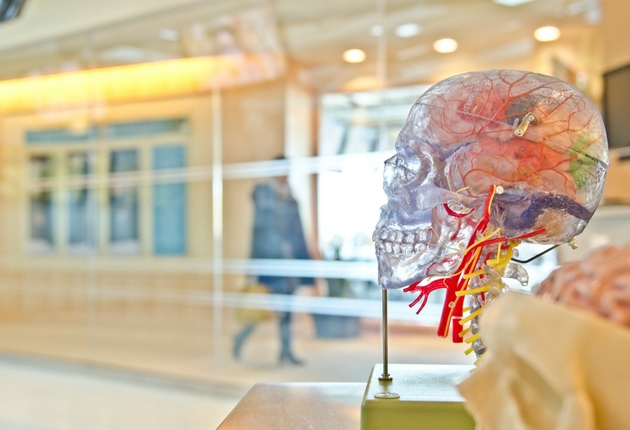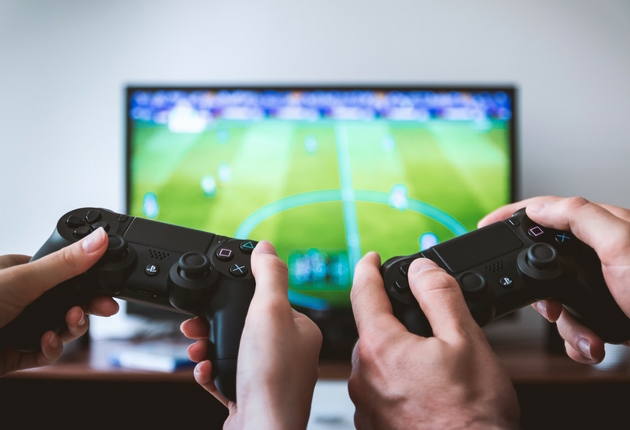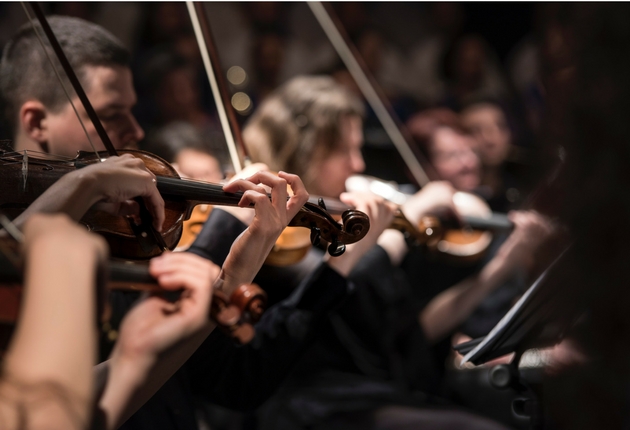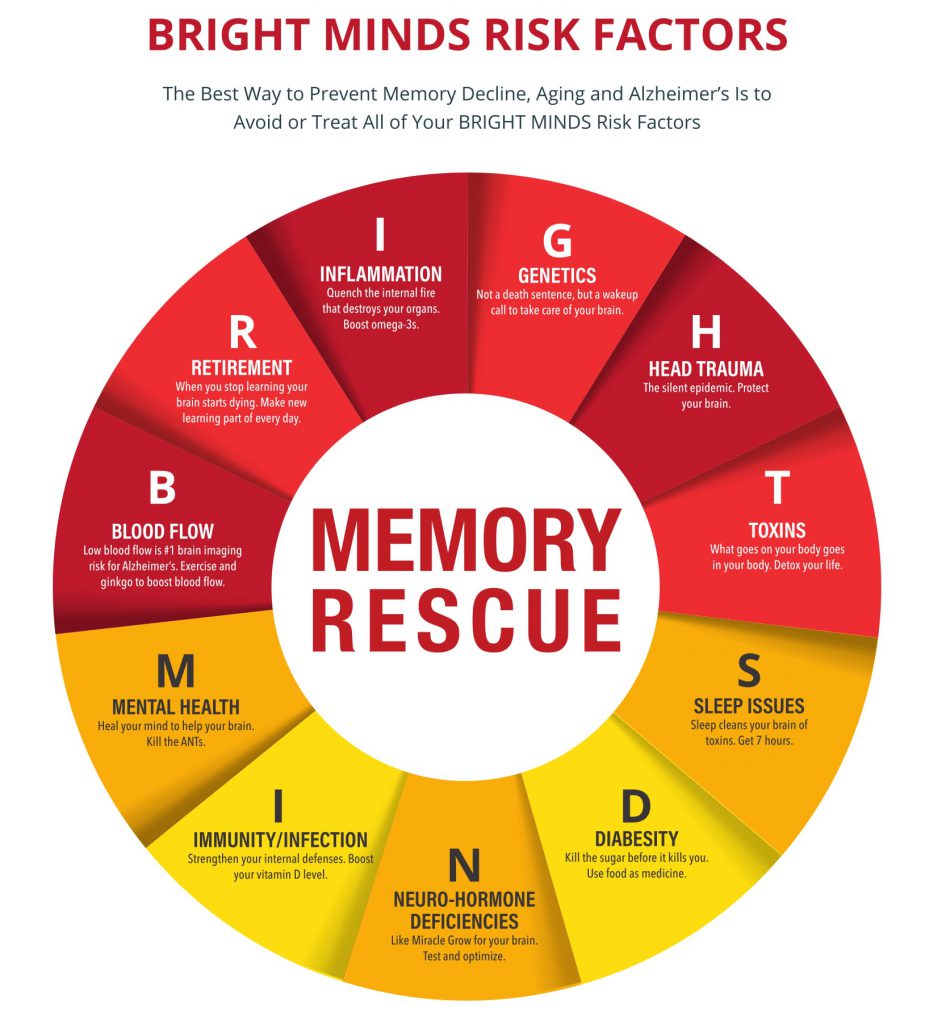October 30, 2017
Give Your Brain a Workout: 10 Exercises Guaranteed to Improve Your Memory
Give Your Brain a Workout: 10 Exercises Guaranteed to Improve Your Memory

Use it or lose it. The old adage is as true of your brain as it is of your muscles. When you learn something, new neural connections are created, which improves your capacity to remember. In fact, regardless of your age, mental exercise has an overall positive effect on your brain. On the other hand, when you stop learning, cognitive performance suffers as the internal connections in your brain begin to break apart.
The best mental exercises involve acquiring new knowledge and doing things you haven’t done before. Even if your routine activities are fairly complicated, such as teaching a college course, reading brain scans, or fixing a crashed computer network, they won’t help your brain as much as learning something new.

Learning has a very real effect on neurons: It makes it easier for them to fire and to continue firing. Like muscles that don’t get used, idle nerve cells waste away. The brain has many different circuits connecting neurons in various parts of the brain. Any set of circuits that is not used grows weak.
Whenever the brain does something over and over, it learns how to do it using less and less energy. New learning, such as memorizing zip codes or learning a new game, helps establish new connections, thus maintaining and improving the function of less-often-used areas of the brain.
The parts of your brain that you use will grow, and the parts of your brain you do not use will atrophy, or shrink. That tells us something about how to exercise the brain. Just doing crossword puzzles or Sudoku won’t give you the full possible benefits. That’s like going to the gym and leaving after doing only right bicep curls.
Bottom line, mental exercise is as important as diet and physical exercise for keeping both your body and brain strong. Here are 10 activities that have been shown to make a difference.

1. Dedicate yourself to new learning. Devote just fifteen minutes a day to a new hobby, activity, or subject matter. Einstein once said that people who spend 15 minutes a day learning something new will become an expert within a year. As in school or business, commitment is critical if you want to reap the benefits.
2. Be purposeful about cognitive training. Community-dwelling seniors who took just a few weeks of cognitive training experienced significantly improved reasoning and speed of processing skills, as well as fewer difficulties with the activities of daily living 10 years later, compared with those who didn’t get such training.[i] On our online portal Brain Fit Life (www.mybrainfitlife.com), we have cognitive brain training games for just this purpose.

3. Take a class about something new and interesting. Community colleges and online groups offer low-cost courses on a wide variety of subjects. Challenge your brain to learn novel and interesting things by enrolling in a class that is unrelated to your work or daily life. Examples include square-dancing (great exercise), conversational Spanish, chess, tai chi, astronomy, or sculpture. Working with modeling clay or Play-Doh can help children or adults develop new neural connections, as well as agility and hand-brain coordination.
4. Cross-train at work. Learning someone else’s job or even switching jobs for several weeks provides workers with better skills and brain function, and may offer the employer greater flexibility. In a grocery store, for example, employees can be taught to work as checkout clerks and to stock shelves, order products, and rotate among the produce, grocery, and dairy sections of the store.

5. Limit television for kids and adults. Adults who watched two or more hours of TV a day had a significantly higher risk of Alzheimer’s disease. Watching TV is usually a “no brain” activity. To be fair, these studies did not specify if watching programs that teach you something, such as one of my shows on public television, had the same effect as situation comedies or sports.
6. Alter daily routines to stimulate new parts of your brain. Do the opposite of what feels natural to activate the other side of your brain and gain access to both hemispheres. When you write, dress, brush your teeth, set the table, shoot basketballs, play table tennis, or use your computer mouse, use your nondominant hand. These changes make your brain feel uncomfortable—in essence, breaking the patterned routine in your life and challenging your brain to make new connections.

7. Travel to new and interesting places. Exposing the brain to unique experiences, scents, sights, and people strengthens the brain. Using maps stimulates the brain in different ways and also exercises the parietal lobes, which are responsible for visual-spatial guidance.
8. Develop friendships with smart people. You become like the people you hang out with. You can trade ideas, get new perspectives, and generally stretch your mind if you are surrounded by fascinating folks. Most of us know that to improve when playing any game, we have to play with people who are better than we are. The same principle holds true in pushing your brain to new heights. Spend time with people who challenge you.

9. Use music to enhance your mind. There is significant research suggesting that both learning to play music and listening to music, especially classical music, can enhance memory and mood. Listening to Mozart or Strauss for just 25 minutes, for example, has been shown to lower blood pressure and the stress hormone cortisol. Classical music also enhances memory and cognitive function.[ii] Listening to ABBA has been shown to lower cortisol.[iii] Mamma mia! Listening to peaceful and joyful music lowered anxiety and depression.[iv] Learning to play music helped to increase the size of the hippocampus.[v] Grab your guitar! Stevie Wonder once said, “Music, at its essence, is what gives us memories.” What’s more, if you listen to happy or peaceful music, you recall positive memories from your past, whereas if you listen to emotionally scary or sad music, you recall largely negative memories.[vi] Music matters.

10. Treat learning problems. Numerous studies show that better-educated people are at a lower risk of developing Alzheimer’s disease and cognitive decline. Yet millions of children, teens, and adults struggle in school or with learning, despite having normal or even high intelligence. Often these difficulties stem from ADD or other learning issues. Recognizing and addressing these problems is essential to making “lifelong learning” a reality. You can take an online test to help you determine whether you have ADD at www.amenclinic.com.
Download and print this FREE Memory Rescue Risk Factors Guide to remind you of the best ways to prevent memory decline.
This article is adapted from Memory Rescue: Supercharge Your Brain, Reverse Memory Loss, and Remember What Matters Most by Daniel G. Amen, MD, available now at Tyndale.com
Sources:
[i] George W. Rebok et al., “Ten-Year Effects of the Advanced Cognitive Training for Independent and Vital Elderly Cognitive Training Trial on Cognition and Everyday Functioning in Older Adults,” Journal of the American Geriatrics Society 62, no. 1 (2014): 16–24, doi: 10.1111/jgs.12607.
[ii] Kim E. Innes et al., “Meditation and Music Improve Memory and Cognitive Function in Adults with Subjective Cognitive Decline: A Pilot Randomized Controlled Trial,” Journal of Alzheimer’s Disease 56, no. 3 (January 2017): 899–916, doi: 10.3233/JAD-160867.
[iii] H. J. Trappe and G. Voit, “The Cardiovascular Effect of Musical Genres,” Deutsches Arzteblatt International 113, no. 20 (May 20, 2016): 347–52, doi: 10.3238/arztebl.2016.0347.
[iv] H.P. Lee, Y. C. Liu, and M. F. Lin, “Effects of Different Genres of Music on the Psycho-Physiological Responses of Undergraduates,” Hu Li Za Zhi: The Journal of Nursing 63, no. 6 (December 2016): 77–88, doi: 10.6224/JN.63.6.77.
[v] M. Herdener et al., “Musical Training Induces Functional Plasticity in Human Hippocampus,” Journal of Neuroscience 30, no. 4 (January 27, 2010): 1377–84, doi: https://doi.org/10.1523/JNEUROSCI.4513-09.2010; Benjamin Rich Zendel, Karen A. Willoughby, and Joanne F. Rovet, “Neuroplastic Effects of Music Lessons on Hippocampal Volume in Children with Congenital Hypothyroidism,” Neuroreport 24, vol. 17 (December 4, 2013): 947–50, doi: 10.1097/WNR.0000000000000031; M. S. Oechslin et al., “Hippocampal Volume Predicts Fluid Intelligence in Musically Trained People,” Hippocampus 23, no. 7 (July 2013): 552–58, doi: 10.1002/hipo.22120.
[vi] S. Sheldon and J. Donahue, “More Than a Feeling: Emotional Cues Impact the Access and Experience of Autobiographical Memories,” Memory & Cognition (February 27, 2017), doi: 10.3758/s13421-017-0691-6.






